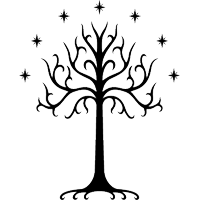Albert Lindemann is perhaps the only Jewish scholar who, unlike most Jewish pundits, acknowledges the reasons why they’ve been so disliked. No ellipsis added between unquoted paragraphs:
Esau’s Tears: Modern Anti-Semitism and the Rise of the Jews (Cambridge University Press, 2009)
Chapter 5. Socialists, Jews and Anti-Semites
"Marxism is not a scientific theory at all, but a piece of clever Jewish superstition." —Paul JohnsonSocialist Movement and Ideology
In the last three decades of the nineteenth century, when modern anti-Semitic movements made their first appearance, the socialist movement grew with great rapidity, above all in Germany after the turn of the century, when support for anti-Semitism waned. The socialist movement, or, as it was called in Germany, the social-democratic movement, may be seen as a successful model of a modern mass movement in a way that the anti-Semitic movement was not.
Marxian socialists identified social class, not race, as the key category of analysis. Indeed, there were elements of philo-Semitism in socialist movements. Friedrich Engels wrote in a personal letter in 1890, “We owe a great deal to the Jews. Marx was of purely Jewish origin; Lassalle was a Jew. Victor Adler, Eduard Bernstein, Paul Singer... all of them Jews.”
Franz Mehring, the socialist biographer of Marx, observed that “side by side with a good many defects in modern Jewry, it is perhaps its highest glory that there is today not one person of culture in Germany who is not linked in intimate relations of heart and intellect with one or more Jews.”
In most countries, but especially in Western Europe and the United States, it was much the same. Even in Russia at the end of the century Jews and non-Jews in the socialist movement bridged to a degree unequaled in other political movements the chasm that separated the two communities. The non-Jew Lenin and the Jew Trotsky forged a powerful partnership in 1917. Lenin worked closely with many Jews, both before and after taking power, and to his death he retained the highest personal affection for his Jewish factional opponent, the Menshevik leader Julius Martov. And of considerable symbolic importance was the famous partnership of the Jew, Marx, and the Gentile, Engels.
_______________
Excerpted from a longer entry that eventually will contain most of the book’s chapters.

























No comments:
Post a Comment